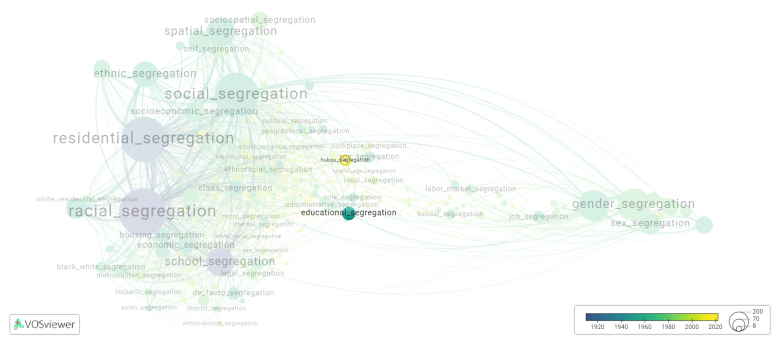Hukou segregation
Date and country of first publication[1]
2020
China
Definition
Hukou segregation refers to the institutionalized system of household registration in China, which divides the population into rural and urban residents. This system has created a social divide between rural and urban populations, with urban residents enjoying better social welfare benefits, access to public services, and more job opportunities compared to their rural counterparts. Hukou segregation has been criticized for perpetuating inequality and limiting social mobility for rural residents. Efforts have been made in recent years to reform the hukou system and reduce the disparities between rural and urban areas.
See also
Related segregation forms
Hukou segregation is frequently discussed in the literature with the following segregation forms:
socioeconomic segregation, educational segregation

This visualization is based on the study The Multidisciplinary Landscape of Segregation Research.
For the complete network of interrelated segregation forms, please refer to:
References
Notes
- ↑ Date and country of first publication as informed by the Scopus database (December 2023).
Hukou segregation appears in the following literature
Shen J., Xiao Y. (202). Emerging divided cities in China: Socioeconomic segregation in Shanghai, 2000 2010. Urban Studies, 57(6), 1338-1356. SAGE Publications Ltd.https://doi.org/10.1177/0042098019834233
Deng W.J., Hoekstra J.S.C.M., Elsinga M.G. (202). The urban rural discrepancy of generational housing pathways: A new source of intergenerational inequality in urban China?. Habitat International, 98(), -. Elsevier Ltd.https://doi.org/10.1016/j.habitatint.2019.102102
